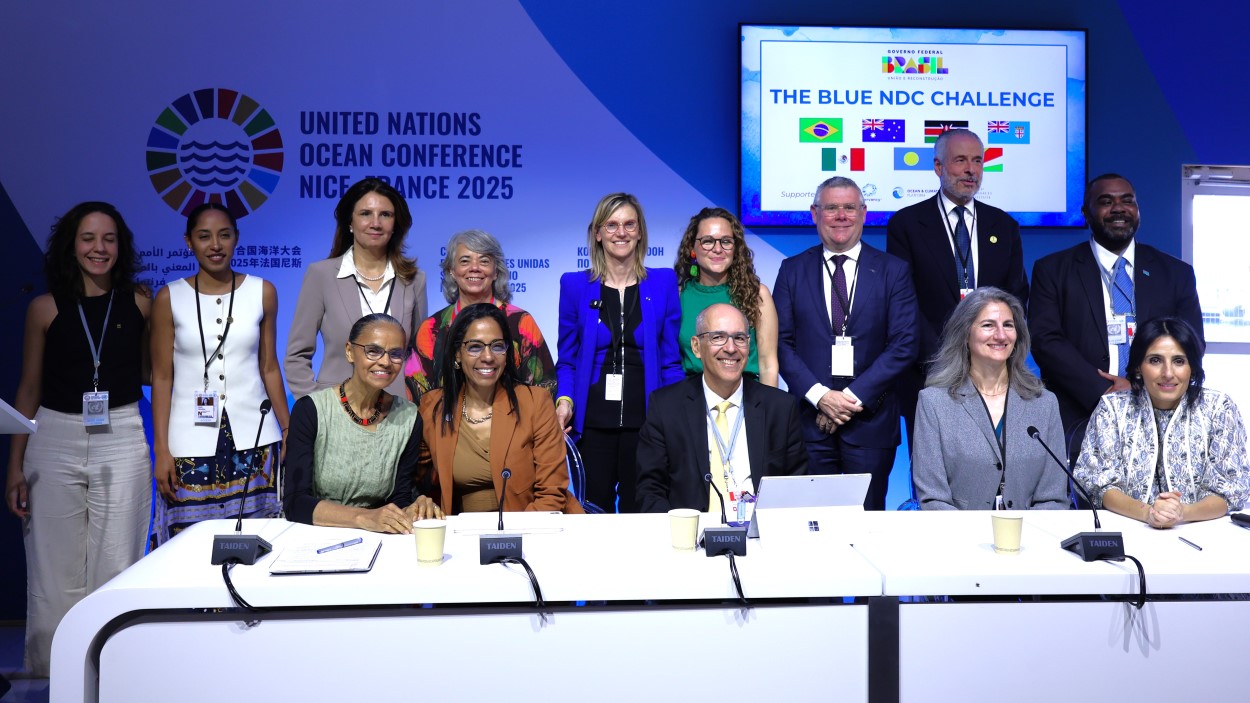“Oceans must be at the forefront of climate discussions,” said Ana Toni CEO of COP30
During the United Nations Ocean Conference, Ana Toni highlighted the importance of financing ocean-based solutions and making strong commitments to protect marine environments

From the COP30 Presidency
On Tuesday, June 10, 2025, Ana Toni, CEO of COP30, advocated for the importance of oceans in tackling climate change at the UN Ocean Conference (UNOC). She participated in panels focused on financing ocean - and coastal - based solutions, adapting to climate change, and mitigating greenhouse gas emissions that affect marine ecosystems.
“How much are we spending to reach the moon or Mars instead of investing time and resources in studying the ocean and the biodiversity that sustains all life?” asked Ana Toni, CEO of COP30. She pointed out that mangroves can store more carbon than terrestrial forests and recalled the global goal to protect at least 30% of coastal and marine areas, as established in the Kunming-Montreal Global Biodiversity Framework of 2022.
Toni further stressed that the ocean is the planet’s primary climate regulator and therefore plays a key role in safeguarding coastal areas from extreme weather events, impacting millions who reside in or rely on coastal zones. She also highlighted the central role of science. “At COP30, we must ensure that when we discuss oceans, we discuss not only solutions, but also but also the imperative to invest in ocean science to comprehend the climate crisis," Toni said.
Brasil’s NDC and the oceans
According to the CEO, Brasil, host country of this year's COP30, has led by example in protecting the oceans. The country included this issue in its National Climate Plan and updated Nationally Determined Contribution (NDC), both of which now incorporate ocean-based solutions.
The Climate Plan serves as a roadmap for Brasil’s climate policy until 2035. All countries party to the Paris Agreement must submit NDCs, or climate targets, to the UN every five years. Brasil has already submitted its NDC, as have 21 other countries.
The COP30 leadership has found allies around the world who support its stance on ocean issues. During a meeting with the COP30 presidency, former U.S. Secretary of State and Special Presidential Envoy for Climate John Kerry underscored the human role in climate change, emphasizing the urgent need for action despite scientific warnings. “Our responsibility is to recognize that we cannot talk about preserving the ocean without discussing what is happening to the climate,” Kerry said at the UN Conference in Nice.
Meanwhile, Carlos Santos, a fisherman who represents the National Commission for the Strengthening of Extractive Reserves and Coastal Marine Extractive Peoples (Comissão Nacional para o Fortalecimento das Reservas Extrativistas e dos Povos Extrativistas Costeiros Marinhos/CONFREM), emphasized the importance of traditional communities in preserving and sustainably managing the ocean. “What guides us on this planet is our inseparable relationship with the environment we live in,” Santos said. “We must learn more from traditional peoples and communities about the oceans.”
In addition to participating in UNOC sessions, the COP30 CEO met with Amna bint Abdullah Al Dahak, the UAE Minister for Climate Change; Maisa Rojas, Chile’s Minister of Environment; and Sanda Ojiambo, the Executive Director of the UN Global Compact.
English version: Trad. Bárbara Menezes
Proofreading by Enrique Villamil
